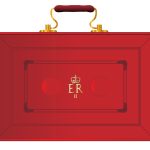What does the latest Budget mean for you and your business? The experts at Dental Elite analysed the announcements to pick out what you need to know and what might leave you underwhelmed…
Anticipation built for this year’s Spring Budget, with many expecting a rabbit to be pulled out of the hat in what could have been a pre-election event. However, the somewhat underwhelming nature of the announcements seem to disprove rumours that were circulating about a May election.
Put frankly, the Chancellor of the Exchequer, Jeremy Hunt, didn’t offer anything worth getting excited over for most dental practice owners and associates who trade as limited companies.
He highlighted that inflation is expected to dip below the 2% target later this year, which most of us would already have been aware of. The 0.8% growth predicted by the Office for Budget Responsibility (OBR) also featured, despite the fact that the economy experienced recession towards the end of 2023.
There were only three key areas of announcements worth bearing in mind. The first was regarding Capital Gains Tax (CGT), which will only affect residential assets. For higher rate tax payers looking to sell a residential property, you will now be able to do so at the lower CGT of 24% – down from the previous 28%.
Though the above was a surprise, the second big change was not. National Insurance Contributions (NIC) were reduced by a further 2p, bringing the total reductions since Autumn 2023 to 4p, dropping it from 12% last year (it was already lowered to 10% from January) down to 8% as of April 2024 for the employed team. This will have greatest impact for dental nurses, practice managers and the reception team. For self-employed professionals – e.g. associate dentists or practice owners trading as a sole trader – Class 4 NICs have decreased from 9% to 6% as of April 2024 (the previous 1% reduction from 9% to 8% had already been announced but hadn’t come into effect yet). As a permanent tax cut, there is the promise of these rates continuing to come down after the next election, albeit most anticipate a change of regime after the next election. However, this is unlikely to affect dental practices that operate as limited companies, as it is not a cut to income tax or corporation tax.
The third announcement of note was around child benefit. Some associates or management staff who were subject to the high-income child benefit charge may no longer be so. Previously, anyone earning over £50,000 in a household would begin to lose child benefit by paying the high-income child benefit tax charge, which was tapered up to £60,000. These thresholds have now been increased, meaning that the high-income child benefit tax charge isn’t triggered until someone in the household earns over £60,000 and the charges are tapered up to £80,000. This will be most relevant to associates who work 2-3 days a week and earn over £50,000, who will now retain more of that child benefit.
Other than these three headlines, there were only minor announcements. For example, the British Savings Bond was launched, which is a government-backed solution that provides a better – guaranteed – interest rate on your savings fixed for three years. The new UK ISA complements this, enabling a small but useful additional £5,000 tax-free saving on investments supporting British companies. Some may be pleased to learn that the alcohol duty has been frozen, as has fuel duty for 2024-25. For larger companies subject to the full expensing options for buying assets, this has also been extended to leasing assets too.
Aside from these points, however, there wasn’t much more to Hunt’s Budget. The good news for dental practices is that there was nothing of particular concern, though most businesses will still be feeling the pressure of next month’s planned increase to the National Living Wage. For individuals, the new NIC cuts could see you take home slightly more each month, so that’s a positive. Otherwise, there’s not much to know.
Of course, this is unlikely to be the case again in the next announcements, so we can certainly expect a more impactful Autumn Statement!
For any advice on how the latest announcement could affect your finances or your business, the experts at Dental Elite are happy to help.
For more information, visit www.dentalelite.co.uk, email info@dentalelite.co.uk or call 01788 545 900
About the Author

Luke Moore is one of the Founders and Directors of Dental Elite and has overseen well in excess of 750 practice sales and valuations. With over 19 years working in the dental industry, Luke has extensive knowledge in both dental practice transfers and recruitment and understands the complexities of NHS and Private practices.


















